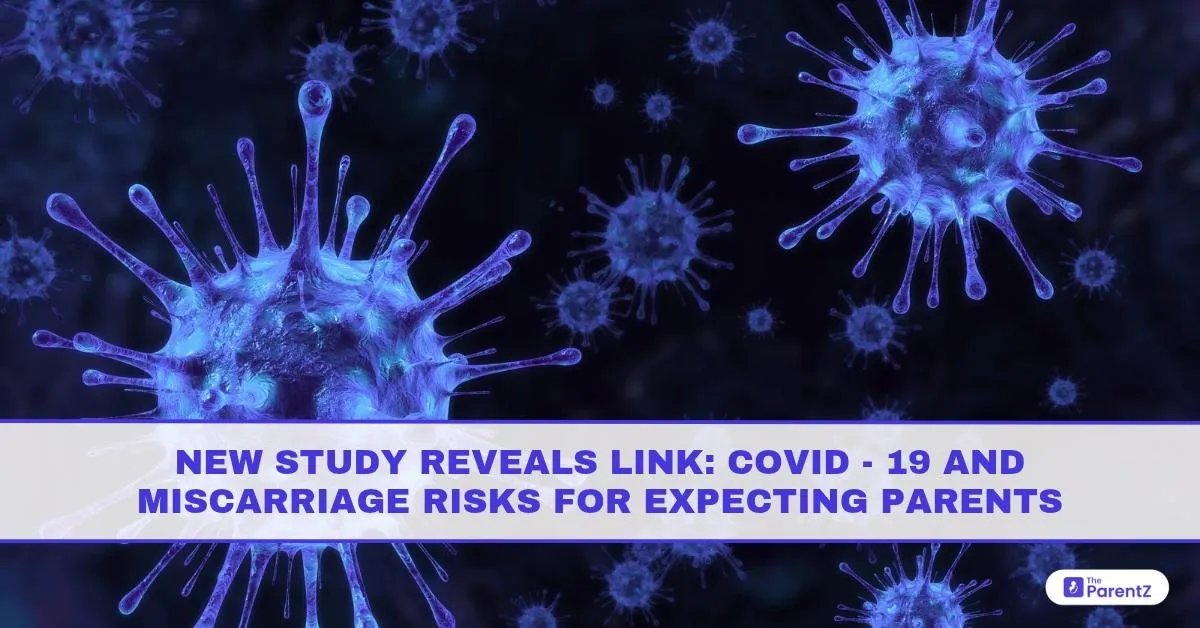When Your Joy Turns to Worry: A Story Many Can Relate To
Imagine this: Ananya and her husband, both excited to welcome their first child, had just found out they were pregnant. But around the 7th week, Ananya came down with COVID-19. She had a fever, a bad cough, and fatigue that left her bedridden for days. A few weeks later, she faced the heartbreaking news of a miscarriage.
Her story isn’t unique. Many expectant parents have wondered: Is there a link between COVID-19 and miscarriage? Recent research suggests there might be. Let’s break down what the latest study says, what this means for families, and how you can protect yourself and your baby.
What the Study Found: COVID-19 and Early Pregnancy Risks
A large study recently published in 2024 looked at nearly 27,000 pregnancies from 2019 to 2023. It found that:
Women who had moderate to severe COVID-19 before conception or during the first trimester were 2.5 to 2.8 times more likely to experience a miscarriage.
The risk was higher among:
- Older mothers (over 35 years)
- Black and Hispanic women
- Those with existing health issues like diabetes or high blood pressure
This study sheds light on what many doctors had suspected during the pandemic: COVID-19 infection, especially early in pregnancy, may affect the delicate process of fetal development.
Why Does COVID-19 Increase the Risk?
It’s not just the virus itself; COVID-19 brings a whole host of body changes that can stress an early pregnancy:
- High fevers in the first trimester can disrupt early fetal growth.
- Inflammation and immune system overdrive may affect the placenta’s function.
- Low oxygen levels (in severe cases) can reduce the baby’s oxygen supply.
- Stress hormones like cortisol surge during infection, potentially impacting the baby’s development.
Dr. Shalini Mehta, a senior obstetrician, explains:
“Pregnancy is a delicate balance. The body’s resources are shared with the growing baby. When a mother’s system is fighting off a major infection like COVID-19, that balance can be disturbed, especially in the early weeks.”
What About Vaccines? Are They Safe?
Here’s the good news:
- COVID-19 vaccines are NOT linked to an increased risk of miscarriage.
- Studies show that vaccinated pregnant women are protected from severe COVID-19 complications.
- In fact, getting vaccinated can lower the risk of severe illness, hospitalization, and adverse outcomes like preterm birth.
Yet, despite this, some recent policy changes have caused confusion. The CDC’s latest guidelines (as of 2024) no longer routinely recommend COVID-19 vaccines for pregnant women and healthy children. But many doctors, including the American College of Obstetricians and Gynecologists (ACOG), still advise vaccination for pregnant women, emphasizing that the benefits outweigh the risks.
So, if you’re pregnant or planning a baby, talk to your doctor about the right approach for you.
How Can Expecting Parents Stay Safe?
Here are simple, practical steps to reduce your risk of COVID-19 during pregnancy:
Vaccinate and Boost
If you’re pregnant and haven’t been vaccinated, or it’s been over 6 months since your last dose, consider getting a COVID-19 booster after discussing it with your doctor.
Stay Healthy with Daily Habits
- Wash hands frequently
- Wear masks in crowded places, especially during flu and COVID-19 seasons
- Get enough rest to support your immune system
- Eat a balanced diet rich in fruits, vegetables, and protein
- Gentle prenatal exercises can boost immunity and well-being
Listen to Your Body
If you develop fever, cough, or body aches, especially in early pregnancy, see your doctor early. Don’t wait! Early treatment and monitoring can make a big difference.
Manage Stress
Pregnancy itself can feel overwhelming, and worrying about COVID-19 doesn’t help. Try simple stress management tools:
- Deep breathing
- Prenatal yoga
- Short walks in nature
- Talking to a friend or counselor
Remember: Your mental health matters as much as your physical health.
What If You Get COVID-19 During Pregnancy?
Stay calm, many pregnant women with COVID-19 recover fully and go on to have healthy babies. Here’s what to do:
Rest and hydrate.
Monitor your symptoms. If you have difficulty breathing, chest pain, or high fever, seek medical care immediately.
Ask your doctor about safe medications like paracetamol for fever or antivirals if you qualify.
Follow up with your obstetrician for extra monitoring, especially if you had COVID-19 in the first trimester.
A Final Word of Hope
While this new study highlights a real concern, it’s also a reminder of the power of knowledge. When we understand the risks, we can take steps to protect ourselves and our babies.
For expectant parents like Ananya, this information can be a source of strength, not fear. With the right care, many women who’ve had COVID-19 during pregnancy go on to have healthy, happy babies.
As Dr. Mehta says:
“Pregnancy is a journey, and sometimes, there are bumps along the way. But with proper care and awareness, you can navigate these challenges and welcome your little one safely into the world.”
So stay informed, stay healthy, and most importantly, take care of yourself. Your body is working hard to create a miracle.





Be the first one to comment on this story.